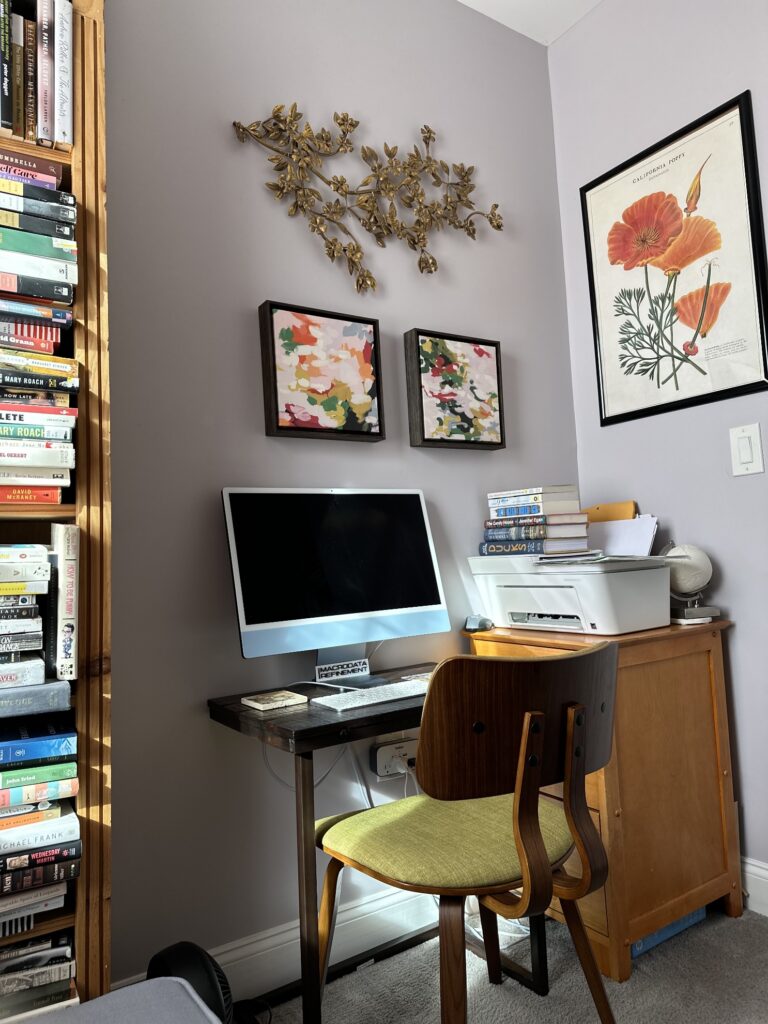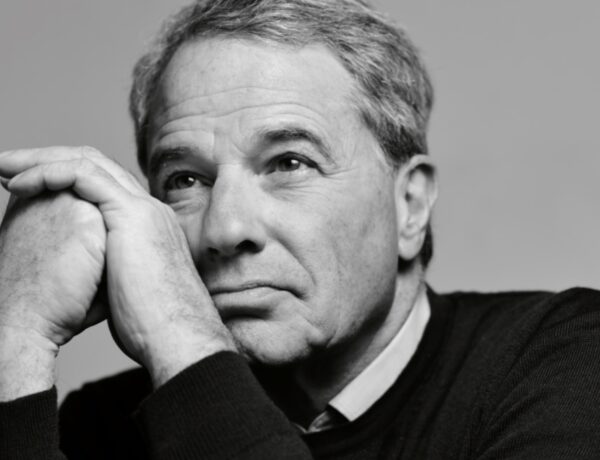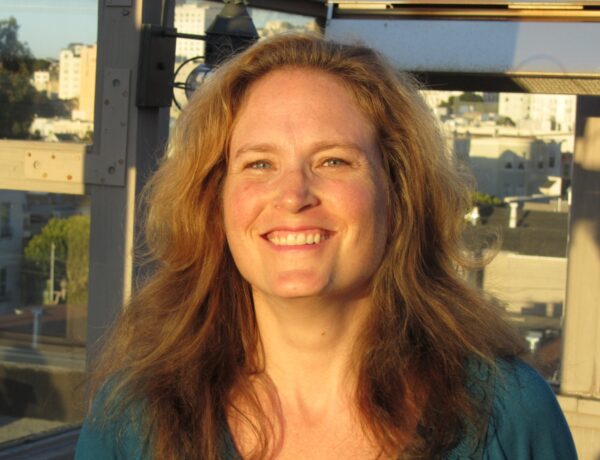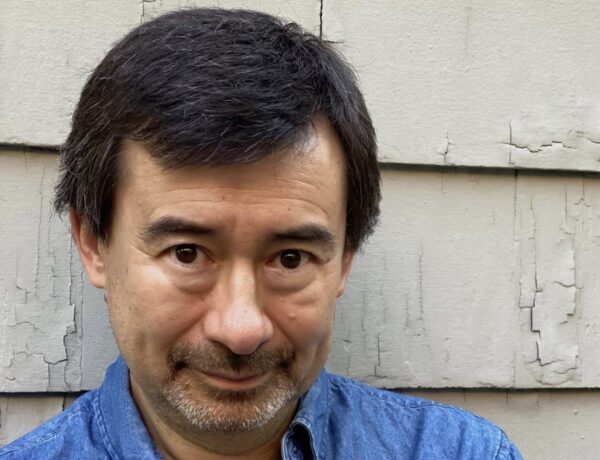Katie Arnold-Ratliff is an accomplished writer, editor, and novelist with a wide range of experience across multiple media platforms.
During her 11-year tenure at O, The Oprah Magazine, she served as the features guru, personal essay czar, and food editor. Two feature packages she worked on, one about women’s relationships with their hair and another about caring for ageing parents, won National Magazine Awards.
Katie’s writing has appeared in many publications such as Slate, Salon, Time, Tin House, The Believer, Wired, Self, Poets & Writers, New York, and the New York Times Book Review. Her range of writing includes personal essays, profiles, celebrity interviews, book reviews, explainers, service pieces, trend pieces, think pieces, works of cultural criticism, Q&As, timelines, tickers, and as-told-tos. She spent a year writing a monthly column for Runner’s World about becoming a runner, and an essay of hers was included in Best American Food Writing 2013.
Each week, we publish a new daily writing routine from a famous author. Subscribe to our newsletter so you don’t miss out!
Hi Katie, welcome to Famous Writing Routines, great have you here with us today! What inspired you to leave the magazine world and pursue writing more actively?
Like many editors before me, I was inspired to leave magazines right around the time a magazine laid me off. I’m joking, of course, though after that occurred (in early 2022 – and actually the magazine as a whole was shuttered, if you want to get technical about it), I was inspired to dive into writing instead of finding another media job.
I loved working in magazines; it was where I grew up both as a professional and a person. But by then it had for a while felt ghostly and perpetually threatened and like the party was over, and it was time to try a new thing. Or rather, an old thing – I’d always written articles for publications beyond those I worked for – but now as a job rather than a hobby.
In your time as a magazine editor, you won or were nominated for a few National Magazine Awards. What was your role in these pieces, and how did you approach crafting them?
A trade secret: It’s a bit silly to say that any one person can win an award for editing something for a magazine since magazines are so innately collaborative – every page has about a hundred eyeballs on it before it ever leaves the building. So while I came up with many ideas for those winning stories and coaxed writers to execute them, a bunch of fellow staffers made those ideas better, nixed the ones that stunk, and helped refine the text that ultimately ran.
Every National Magazine Award-winning or -nominated piece I was part of was a “package,” an industry term that means a grouping of themed articles that cohere into an illuminating whole. In my decade-plus at O, The Oprah Magazine, I headed up or contributed to dozens of packages, two of which won National Magazine Awards: one was about the personal and cultural significance of women’s hair; the other was about caring for ageing parents. (We were very versatile!)
Those two packages were extra collaborative, like even more than usual, and my role was in part to ponder the approach: Should we explore this theme entirely through essays, or via a mix of personal reflections and reportage? Is there an organizing principle that could inform how the pieces fit together?
Then came the assigning and editing, which was, at least for me – an editor who specialized in personal essays – always as much about helping a writer make sense of their memories and motivations, clarifying how they truly felt about some of the most vulnerable moments of their lives, as it was about perfecting their prose. It was delicate work but I enjoyed it, and I think navigating that thorny process with grace was among my greatest talents as a magazine editor.
Then, at Parents, where I was features editor for two years, my package that was nominated was about raising kind children, and it felt timely: It ran in 2020, as we were seeing in a literal way how our actions impacted others. We explored the topic from a bunch of angles.
How has the cultural view of kindness in kids changed over time? (When I was a kid in the 80s and 90s, the ubiquitous kindness curricula of today were not yet, as they say, a thing.) How and when do the ingredients for kindness – like the ability to grasp that our actions have consequences – develop in children? What to do when your kid does something unkind? And so on. It didn’t win, but I’m still very proud of it.
How did your time as an editor shape your writing, and what skills did you learn that you still use today?
I fell into a magazine career straight out of grad school, having just received an MFA in fiction. So there were things I “knew” as a writer, but in many cases I hadn’t internalized them and probably still thought I could skirt them if I were clever enough. Being an editor crystallized those lessons and made living and writing by them automatic.
Here are a few: Clarity and momentum matter more than any pretty turn of phrase. A story has to come to something, to change the reader, even if that change is simply that they’re moved by what they’ve read (which isn’t so simple at all). Every story has been told a zillion times already, so if you take that story on, you better add something to it.
Being an editor instilled in me a merciless precision and an allergy to bullshit, and I’m grateful for both. Finally, being on staff at a magazine often provides one with near-constant chances to write for that magazine, and I’m equally grateful for the hundreds of stories I got to write for O and Parents – because being edited is so second nature to me now that criticism barely registers.
You have experience in various forms of writing, including fiction, personal essays, profiles, and even ghostwriting. What do you enjoy most about each of these forms, and how do you approach each one differently?
I enjoy some more than others, certainly! And each feels so different that it’s weird that they’re all ostensibly the same activity. Writing a profile is pure joy. I’ve never written one that didn’t result in me falling at least a little bit in love with the subject. (In almost every case some kindly editor has had to tell me to tone down the hero worship I didn’t even know I was engaging in.) Same with book reviews – I could write them all day. But I have some words of caution about them.
Once, I reviewed a novel by a person with a contentious public persona, and I mentioned this persona in the review in a manner that now feels ungenerous and irrelevant. It makes me cringe. So, my first piece of advice is to not do that.
Second anecdote: Once, on a fourth or fifth date, a guy and I walked into a bookstore and I saw a new paperback on a table. I said, “Hey, want to see something crazy?” and showed him that the cover of this novel quoted a line from my review of it, which had run in a household-name magazine. I wasn’t showing off! It was just exciting to be vaguely relevant in that teeny tiny way! But he thought I was peacocking, and it was awkward.
So, I don’t know if my advice is “don’t boast about your snazzy bylines” or “don’t date men who can’t handle that you have snazzy bylines,” but take from this tale what you will. I do love writing personal essays, and have written roughly twelve million, but now that I’m a mother they make me nervous.
Not because I worry my son will be scandalized by the things I’ve disclosed, but because he’s so much of my life now that writing about my life must necessarily include stories about him, and I don’t want to drag him onto the page against his will. The compromise I’ve landed on is writing about parenting, which feels like writing about myself, not my son.
Ghostwriting I find both invigorating (I’m almost always writing about stuff I know nothing about initially, and learning it chapter and verse, which is cool) and nerve-wracking. The book means so much to the author, and you’re responsible for making it great. It’s like being asked to raise someone’s baby for a year.
But it’s writing fiction that’s most sacred to me, and most personal – all the forms of writing I just mentioned, however lucky and enjoyable, feel more like my job than my passion, which is what fiction is. However, I also find the experience of writing it paradoxical.
It’s the most natural thing (when I’m writing), and it’s tedious contortionism (during revision). I’m good at it when it’s going well, I’m a talentless pretender when it’s not coming together. I’ve grown as a novelist, except that every time I start a new project I realize all I’ve learned is how to write the previous ones. And yet, could I ever quit fiction? No.
Can you walk us through your writing routine, from when you sit down to write to when you finish for the day?
It depends on whether I’m writing something with a deadline or something for me. So, let’s say I’m writing a personal essay for a magazine (which I just did a couple of days ago). I arm myself with iced coffee and warm socks, and write in the way I was taught to: Perfect every sentence before moving on to the next. (It’s only afterward that I go back and retrofit earlier sentences to serve the greater whole, if some different greater whole from the one I anticipated has emerged, which invariably it has.)
I do a lot of stopping and staring at nothing, a lot of dicking around on my phone. I’m bad at focusing, except when I get onto a hot streak and the piece is coming together easily and well, and then I cannot be pulled away by even the most enticing distraction. I notice this happens most often when I’m getting high on my own supply – that is, when I know the piece is sounding good, and I’m feeling powerful and capable and enamored of my own brilliance. Luckily, before I ever send these pieces off to their editors, that mercilessness I mentioned kicks in, and I go pare down as much of the “behold my genius” garbage as I can.
When writing fiction, I still have the coffee and socks and sentence-by-sentence method, but I’m a heat-seeking missile in terms of focus. It often gets unhealthy – many times I’ve forgotten to get up to pee for hours or skipped meals or shooed away loved ones in order to keep writing. (Except my son, he’s too cute to shoo.)
It’s dismayingly easy to lose momentum when you’re writing a novel, since they contain so many moving pieces and simultaneous threads you need to be plucking. If I step away for a few days, I come back with amnesia: What am I supposed to be doing here again? What was the point of this scene? Who wrote this trash? So I work voraciously to head that feeling off, but it always comes anyway, because I always have to step away. (I have a kid, a job, a life.) It’s hard.
Do you struggle to stay focused while writing? You’re not alone! That’s why Famous Writing Routines recommends Freedom – the ultimate app and website blocker for Mac, Windows, Android, iOS, and Chrome. With over 2.5 million users, Freedom helps writers stay on task and avoid distractions. Get started for free today and reclaim your productivity!
How do you approach the creative process, and how do you maintain creativity in your writing?
When I’m conceiving a novel I live by the Don Draper adage to “think very deeply about it, then forget it.” In other words, to let cogitations happen in the background as I go about my life, because I find that an idea or solution will bubble to the surface. But in the writing stage, for both fiction and nonfiction, my ethos is to try everything. If I have an idea that intrigues me – an unusual structure, a turn in the plot – I try it. Often it fails and won’t be used. But what if I didn’t try??
I think the way to maintain creativity in writing is to nurture a healthy disgust for settling – for the tired, the inexact, the obvious. I said before that clarity is more important than pretty or clever turns of phrase, but that doesn’t mean thrilling and electric prose isn’t important.
I constantly paralyze myself by asking stuff like “Could this description come even closer to the thing I’m describing?” or “There is one just-right word that needs to be used here – is this that word?” Which is unpleasant and exacting and enough to make you nuts, but also necessary. I’d rather the act of writing be excruciating than my writing be bland.
Your TBR list is 21,351 titles long! What are some books you have recently read and enjoyed?
It’s actually down to a still unreasonable 18,124 – not because I read 3000+ books, mind you, but because I did a little (admittedly pointless) culling recently. A quick plug: To track my TBR I use an app called Reading List, and I’ve sent so much praise to its lovely developer, a nice man in England, that we’re now on a first-name basis. He’d indulged me by adding a mechanism that suggests a random book from your list if you shake your phone, because choosing is hard.
The best books I’ve read of late are An Account of the Decline of the Great Auk, According to One Who Saw It, by Jessie Greengrass (a short story collection, it’s imaginative and tragic and wise), Whatever Happened to Interracial Love?, by Kathleen Collins (another story collection, one that totally makes up its own rules), and a trio of books that were all excellent and memorable and, entirely by accident, about dead children: Hamnet, by Maggie O’Farrell; No One is Talking About This, by Patricia Lockwood; and An Exact Replica of a Figment of My Imagination, by Elizabeth McCracken.
I just finished The Liar’s Club, by Mary Karr, which I’d somehow never read and was astonished by, and now I’m in the midst of Cultish, by Amanda Montell, which is fascinating fun. Next up is Dora Bruder, by Patrick Modiano and Drive Your Plow Over the Bones of the Dead, by Olga Tokarczuk. They’ve both won the Nobel and yet I’ve never read anything by either of them, and that just doesn’t sit right with me.
If you could have a conversation with any author throughout history about their writing routine and creative process, who would that person be?
I’m just going to say my two favorite authors, F. Scott Fitzgerald and Vladimir Nabokov, and my only real question would be, how’d you do that? I’ve been reading and rereading them for years and I still don’t understand how it’s possible to write with such crystalline beauty and intensity and grace all at once.
What does your current writing workspace look like?
In theory, it’s the third bedroom of our New Jersey house. In reality, it’s the size of a walk-in closet. But I’m lucky to have it. It has lavender walls and a comfy couch and it gets a lot of sun through its gauzy curtain, and it’s so stacked with books that I once panic-Googled how much weight a floor can take before it collapses. (I think I’m good for another one- to two-thousand paperbacks.) On the wall is a print by Lisa Congdon – a photograph of her vintage eraser collection, a nod to the editing I do there – and a giant botanical drawing of Eschscholzia californica, the flower of my home state.


Affiliate disclaimer: Some links on this website are affiliate links. We may earn a small commission if you make a purchase through these links, but only promote products we truly believe in. We disclose affiliate links and give honest reviews.



No Comments